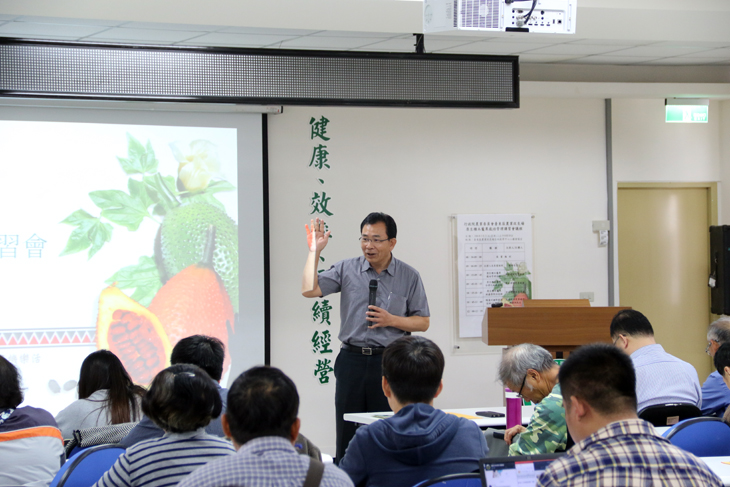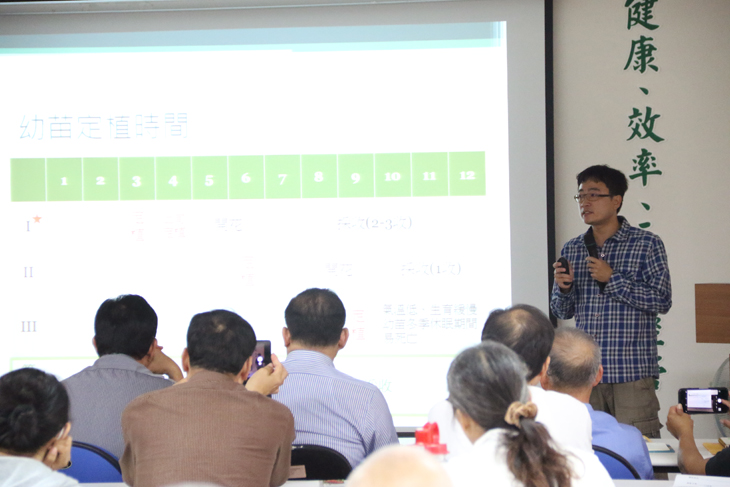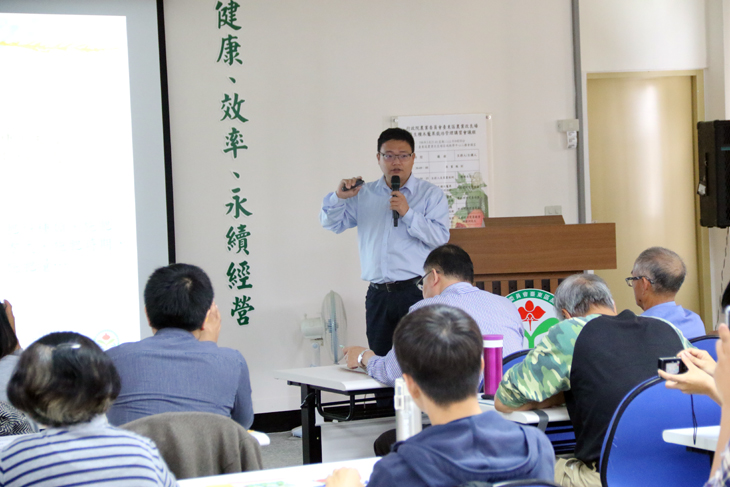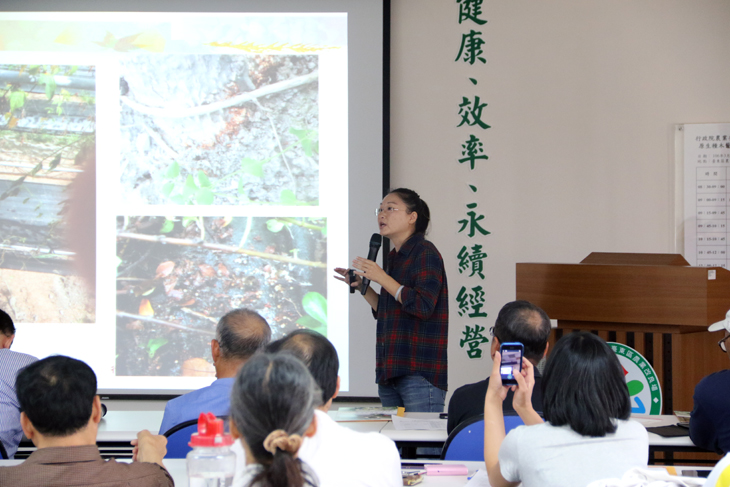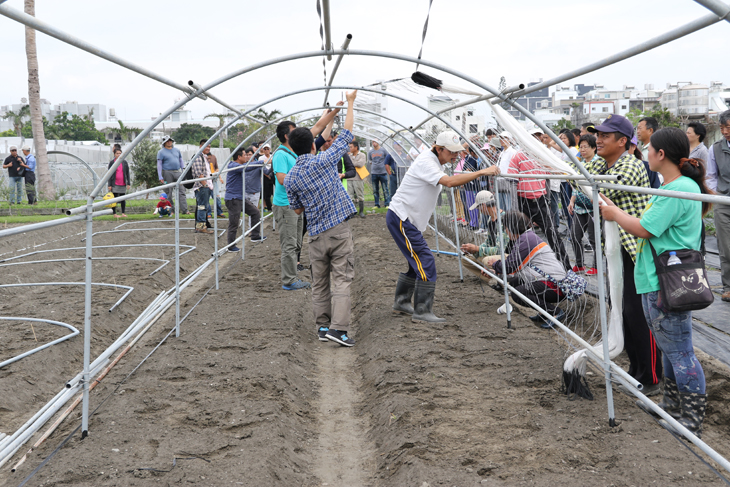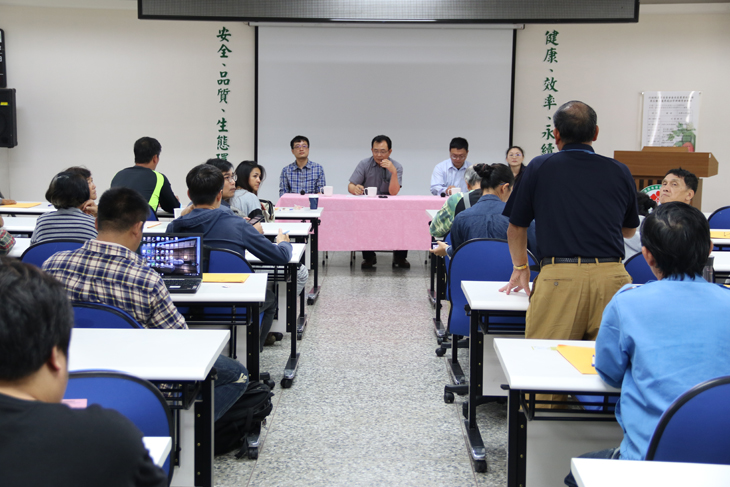In promoting the cultivation of Taiwan’s indigenous gac, the Taitung District Agricultural Research and Extension Station (TTDARES) of the Council of Agriculture, Executive Yuan held the “Gac Cultivation Management Lecture” at TTDARES headquarters on March 21. Over 100 people attended the lecture, including representatives from legislator Liu Zhao-hao’s office, the Eastern Region Branch of the Agriculture and Food Agency, and Farmers’ Associations from all over Taitung County. In addition to discussing the fruit’s features, mass production, smart fertilization, and disease/pest control, the construction of tunnel-shaped canopies for growing the fruit was demonstrated on site, and attendees were invited to partake in hands-on learning. In this way, farmers learned more about technique regarding the growth of the fruit, laying a firm foundation for the future development of the industry.
TTDARES Director Chen Hsin-yen stated that Taiwan’s indigenous gac is different than species found in Vietnam and other Southeast Asian countries. The aril of the variety promoted by the TTDARES has a fresh, sweet, mild, moist flavor without any oily, bitter, or astringent aspects, so it is great for use in juices or as a natural ingredient valuable to the dining and baking industries. Over the past two years, the TTDARES has made breakthroughs associated with seed germination bottlenecking. In addition to sharing its germination technique with two growers, the TTDARES has also established mass production, smart fertilization, and pest/disease control techniques in the hope of expanding the amount of land devoted to growing the fruit and bolstering its production to an industrial-sized scale.
First, assistant researcher Hsueh, Ming-Tung of the TTDARES Department of Crop Improvement discussed the cultivation of indigenous gac and spoke in detail about research carried out by the TTDARES in recent years on the cultivation of this dioecious vine crop using tunnel-shaped canopies along with the process of perennial production. Then, assistant researcher Liao, Ching-ying of the Department of Crop Environment talked about soil sampling in new gac fields, plant nutrition management, and smart fertilization in accordance with crop and soil features. Growers were welcomed to make use of the free soil analysis service at the TTDARES. Assistant researcher Hsu, Yu-Tzu discussed disease prevention and insect prevention (such as for melon flies) as well as related information. Finally, a hands-on demonstration with technical guidance was given on properly constructing a tunnel-shaped canopy suited to growing indigenous gac. Those present expressed a high degree of satisfaction with the information given on cultivation techniques, smart fertilization, and disease/pest control as well as the hands-on demo, and they also voiced a number of suggestions and discussed more about the subject amongst each other. In this way, they learned a great deal about the mass production and development of indigenous gac, which will turn the crop into an industry of larger scale in the future.
